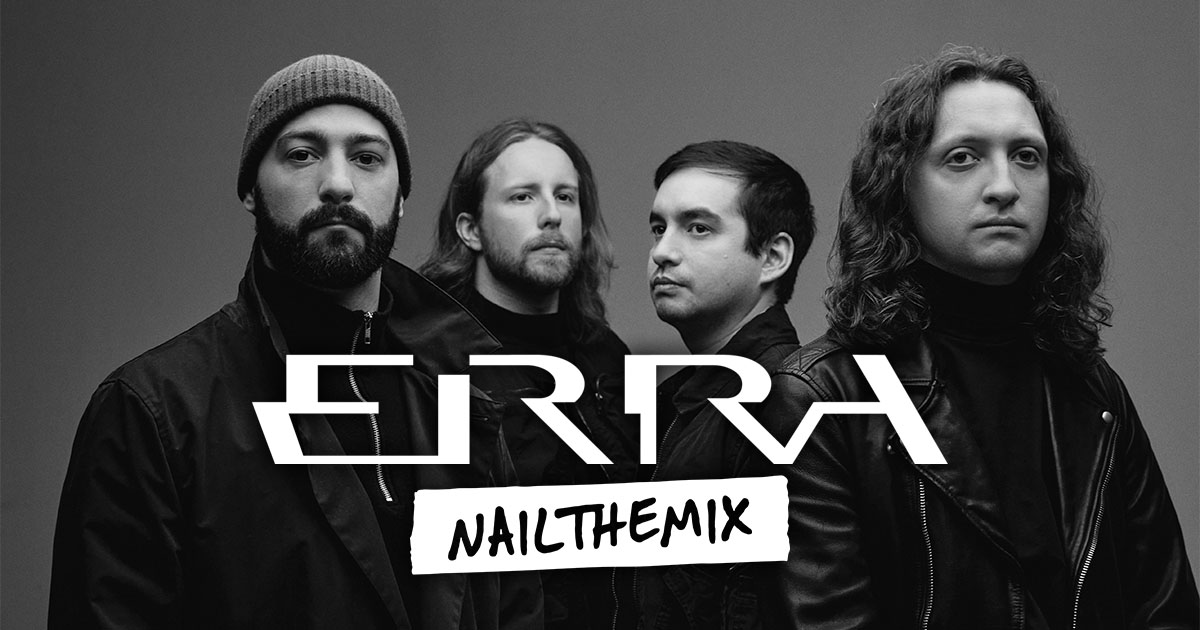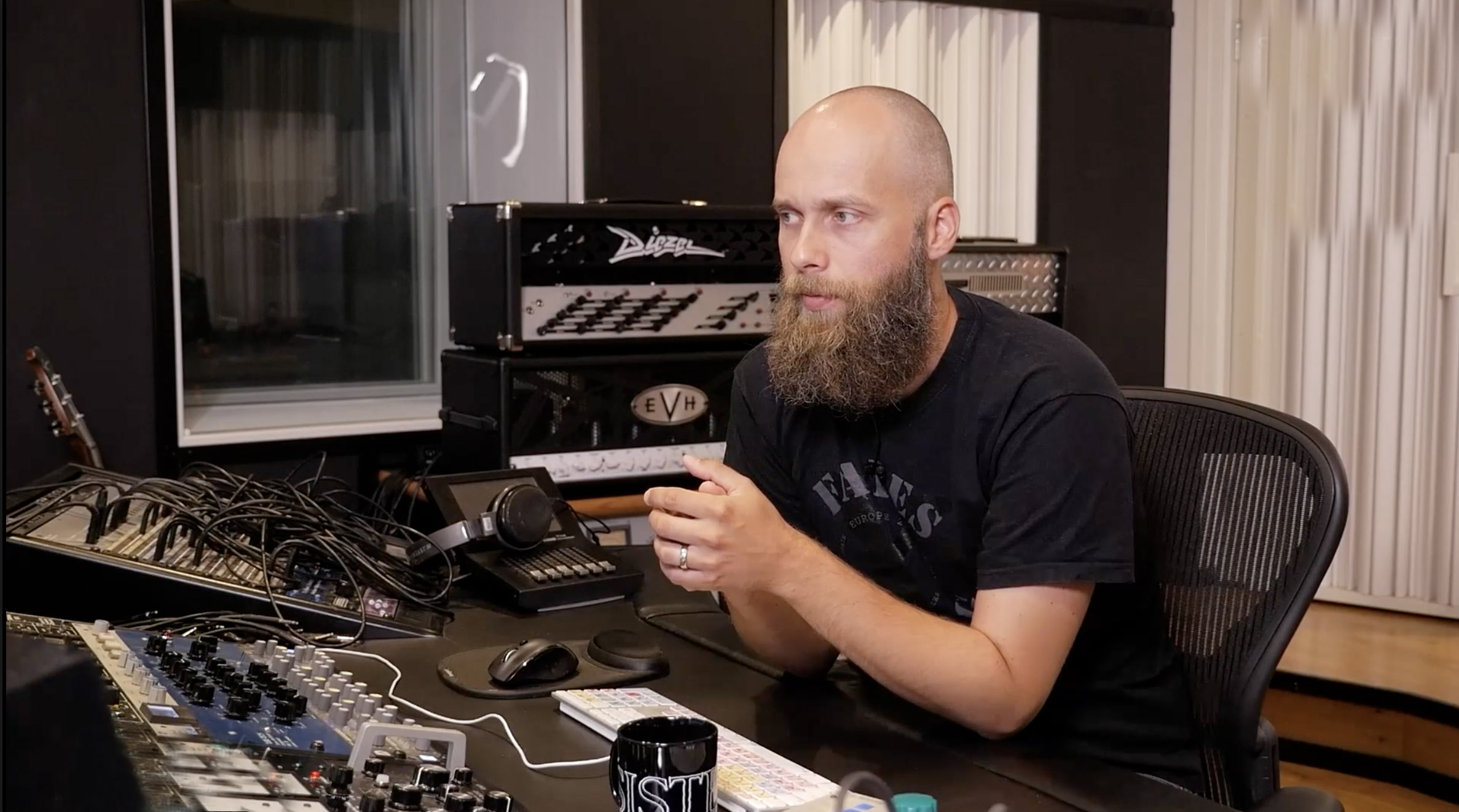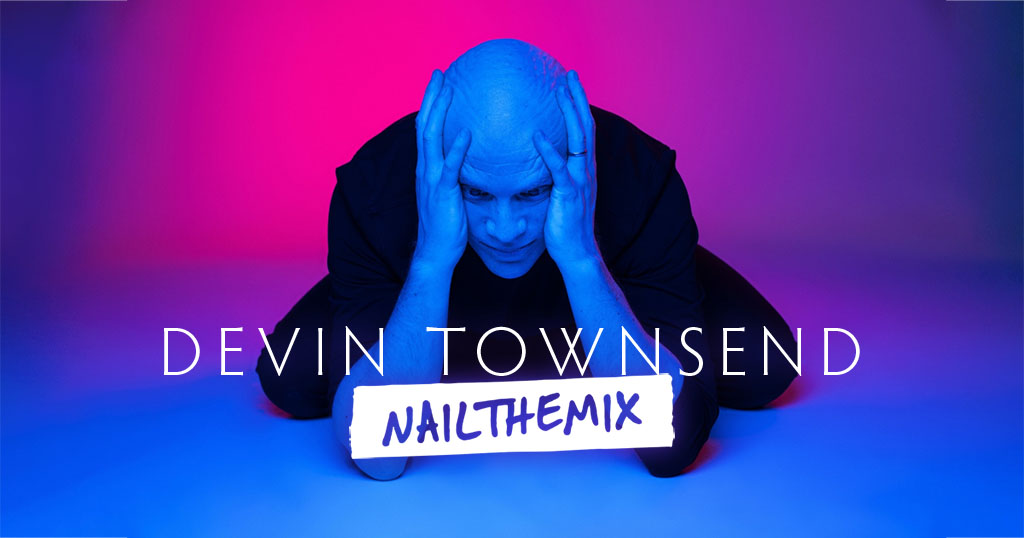
Reaper DAW Price: More Than Just a Free Trial for Metal?
Nail The Mix Staff
So, you’re eyeing up Reaper. The “Reaper DAW price” – or lack thereof for a good long while – is definitely a massive draw. We get it. Who doesn’t love a killer deal, especially when you’re pouring cash into 7-string guitars, boutique amp sims like the latest Neural DSP Archetype, and enough drum samples from Toontrack or GetGood Drums to build a virtual John Bonham?
But let’s be real: while Reaper’s super-generous trial and affordable license are a sweet starting point, the price tag is just one piece of the puzzle when choosing your command center for crafting brutal metal. You need a Digital Audio Workstation that can handle the sonic onslaught you’re about to unleash. Can Reaper truly hang with the big dogs when it comes to churning out professional-sounding metal? Let’s dive in.
Reaper DAW Price: The Almost-Too-Good-To-Be-True Deal
First off, let’s talk about that infamous Reaper “trial.” Unlike most DAWs that give you a 30-day taste test before locking you out, Reaper offers a fully functional evaluation period. For 60 days. And even after that, it doesn’t cripple itself; you just get a polite reminder screen. This alone has made it a gateway for countless producers.
The Actual Cost:
When you’re ready to make it official (and you should, Cockos deserves it!), the pricing is refreshingly straightforward:
- Discounted License: Around $60. This is for personal use, or if your commercial music-related gross revenue doesn’t exceed $20,000 USD per year. For most home studio warriors and aspiring producers, this is the one.
- Commercial License: Around $225. If you’re a bigger studio or making serious bank with your productions, this is your tier.
Compared to the hundreds, sometimes thousands, you can drop on other DAWs (especially with their tiered versions and upgrade paths), Reaper’s price is a breath of fresh air. This accessibility is a huge reason why it’s gained such a foothold, especially in the DIY metal scene. You can get a pro-level tool without auctioning off your prized Ibanez.
But is it just cheap? Hell no. Reaper packs some serious heat under the hood.
Beyond the Price Tag: What REALLY Matters When Picking a DAW for Metal
Okay, so Reaper’s affordable. Awesome. But here’s the deal: any major DAW these days – Pro Tools, Cubase, Logic, Ableton Live, FL Studio, Studio One, Bitwig, and yes, Reaper – can technically make a great-sounding record. If you know what you’re doing, you can bend pretty much any of them to your will.
However, they all have their quirks, strengths, and weaknesses. And once you get locked into a workflow, jumping ship to another DAW is about as fun as re-stringing a Floyd Rose in the dark. So, it pays to choose deliberately. Don’t just grab what your buddy uses. Try a few, see what clicks.
For us metalheads, here’s what you should be dissecting:
Core Audio Capabilities: The Non-Negotiable for Metal
Metal production means audio, and lots of it. Think multiple drum mics (or layers of samples from something like Slate Drums), quad-tracked rhythm guitars, screaming lead harmonies, bass DI and amp tracks, and stacks of vocals. Your DAW needs to handle high track counts, complex routing (think parallel processing on snares or vocals), and intensive plugin chains without choking.
- Pro Tools has long been the studio standard, especially in the US, largely because its audio engine was built from the ground up to mimic analog console workflows. It excels at recording and editing audio.
- Cubase is another heavyweight, very popular in Europe and gaining traction Stateside. It’s a beast for both audio and MIDI, a true all-rounder. Steinberg, its creator, even invented the VST plugin format.
- Reaper? It stands tall here. Its audio engine is robust, efficient, and can handle massive sessions. Anything you can do in Pro Tools or Cubase in terms of pure audio horsepower, you can do in Reaper.
Editing Prowess: Chopping Guitars and Tightening Drums
Let’s face it, metal often demands surgical precision. Aligning kick and snare samples, tightening up those chugs from your ESP LTD, comping the perfect vocal take, or even complex drum editing with Beat Detective-style tools – these are daily tasks.
- Logic Pro X (Mac only, remember) is great for many things, but its audio editing, especially for the kind of intricate, grid-based work metal often requires (like editing multi-miked drums), isn’t its strongest suit. Some folks even track/edit drums in Pro Tools and then mix in Logic – clunky, right?
- Reaper excels here. Its editing tools are incredibly flexible. Combine that with its powerful custom actions and SWS/S&M Extensions (a free pack of user-created enhancements), and you can build incredibly efficient workflows for repetitive editing tasks. Want to instantly split all items at transients, auto-fade them, and then quantize them based on item length? Reaper can do that with a custom action you build or download. This is a game-changer for editing speed.
MIDI and Loops: How Critical Is It For Your Metal?
While metal is predominantly live instrument-focused, MIDI still plays a huge role. Think programming realistic drums with Superior Drummer 3, adding orchestral layers with Kontakt, or sketching out song ideas with virtual instruments.
- Ableton Live and FL Studio are MIDI and loop manipulation kings, built for electronic music and beat-making. Their warping algorithms and clip-based workflows are fantastic for that. Pro Tools, on the other hand, has historically been weaker on the MIDI front.
- Cubase offers a very mature and comprehensive MIDI environment.
- Reaper’s MIDI capabilities are solid and deep. It might not have the flashy built-in instruments or loop libraries of Logic or Cubase Pro, but for sequencing VSTis, editing MIDI performances, and integrating MIDI into an audio-heavy project, it’s more than capable. Plus, metal producers often rely on third-party giants like those mentioned above anyway.
Workflow and Customization: Making the DAW Your Own
This is where Reaper truly shines and, for some, can be a bit daunting initially.
- Reaper is like the Linux of DAWs; you can customize everything. From themes that change its entire look (want it to look like Pro Tools? There’s a theme for that) to mouse modifiers, custom toolbars, and creating complex macros (Actions) that automate multi-step processes with a single keystroke. You can even write your own scripts (JSFX, ReaScript using Lua or Python) to add unique functionality.
- This means you can tailor Reaper to your exact workflow, making you incredibly efficient once you’ve got it dialed in. Other DAWs offer some customization, but not to this level.
Plugin Support: VST, AU, AAX – Navigating the Alphabet Soup
Your DAW is just one part of the equation; plugins are where a lot of the magic happens, from EQing with a FabFilter Pro-Q 3 to smashing drums with a Waves SSL G-Master Buss Compressor.
- VST (Virtual Studio Technology) is the most common plugin format, especially on Windows. VST3 is the current iteration.
- AU (Audio Units) is Apple’s native format for macOS.
- AAX (Avid Audio eXtension) is Pro Tools’ proprietary format.
- Most major plugin developers (Waves, FabFilter, Slate Digital, iZotope, Plugin Alliance) offer their tools in all major formats. However, some smaller boutique developers or freeware gems (like some specific impulse response loaders, e.g., NadIR, or unique distortion pedals) might only be available as Windows VSTs.
- Reaper has excellent plugin support. It handles VST2 and VST3 plugins flawlessly on Windows and Mac, supports AUs on Mac, and can even bridge older 32-bit plugins if you’re still clinging to some ancient favorites. This broad compatibility is a big plus. If you’re deep into carving out space with EQ or love experimenting with different compression flavors for metal, Reaper won’t hold you back.
Community and Support: Who Ya Gonna Call?
When you hit a snag or want to learn a new trick, where do you turn?
- Pro Tools and Cubase have massive user bases and tons of official/unofficial tutorials, forums, and resources.
- Reaper boasts an incredibly active and helpful community. The official Cockos Reaper Forums are a goldmine of information, scripts, and support from fellow users and even the developers themselves. There’s a huge wealth of user-created video tutorials too.
- Newer or more niche DAWs like Bitwig Studio or Studio One (though PreSonus’s Studio One is rapidly growing) have smaller communities, so finding specific help might take a bit more digging.
Collaboration: Playing Nice with Others
If you plan on sending sessions to other producers, mixers, or working in commercial studios, this is a factor.
- Pro Tools is still largely considered the “industry standard,” especially in established US studios. If you’re sending files to a big-name mixer, chances are they’ll want Pro Tools sessions.
- Using a less common DAW often means bouncing all your tracks to audio stems for collaboration, which can be limiting if further tweaks are needed.
- While Reaper’s popularity is surging, you might still be “the Reaper guy (or gal)” in your local scene or when collaborating with folks outside the dedicated Reaper community. It’s less of an issue than it used to be, but something to be aware of.
So, How Does Reaper Stack Up for Metal Producers?
Considering all this, Reaper isn’t just a budget option; it’s a powerhouse perfectly suited for the demands of metal production.
The Pros of Reaper for Metal:
- Price/Generous Trial: Unbeatable value. Try it extensively before you buy.
- Powerful Audio Engine: Handles high track counts, complex routing, and low-latency performance.
- Editing Flexibility: Supreme. Custom actions and scripts can make tedious metal editing tasks (like aligning hundreds of drum hits or comping layered guitar chugs) much faster.
- Stability and Low Resource Usage: Reaper is famously lightweight and stable, meaning more CPU power for your amp sims and reverbs.
- Extreme Customization: Mold it into your perfect metal-making machine.
- Excellent Plugin Support: Use virtually any VST or AU plugin you can find.
- Active Community: Get help, share tips, and find tons of resources.
Potential Downsides of Reaper for Metal:
- Steeper Initial Learning Curve (for deep customization): While basic operations are straightforward, unlocking Reaper’s full potential for customization can take time. It’s not always as “plug and play” out of the box as something like GarageBand or Logic for very simple tasks.
- Less “Industry Standard” (for some collaboration): As mentioned, if you’re frequently exchanging full sessions with Pro Tools-centric studios, it might require extra steps.
- Fewer Built-in “Premium” Instruments/Loops: Compared to Logic Pro X or Cubase Pro, Reaper’s included sound library is more basic. But most metal producers are using third-party VSTis for drums (Steven Slate Drums, Superior Drummer), bass (Submission Audio, Impact Studios), and synths anyway.
Reaper vs. The Big Guns (Pro Tools, Cubase, Logic) for Metal:
- vs. Pro Tools: Reaper matches its audio editing and mixing muscle, offers far more customization, and is significantly more affordable. Pro Tools still wins on sheer industry ubiquity for high-end studio collaboration.
- vs. Cubase: Cubase is an excellent all-rounder with mature audio and MIDI. Reaper offers a similar depth in audio, potentially more editing flexibility via scripting, and a much lower price point. Cubase has a more “traditional” feel that some prefer.
- vs. Logic Pro X: For Mac users, Logic is a great value with tons of included content. However, Reaper generally surpasses it in terms of raw audio editing flexibility and customization, which are crucial for metal. Plus, Reaper is cross-platform.
Making Your Choice: It’s Your Battle Station
Ultimately, the “best” DAW is a personal decision. Don’t just obsess over the Reaper DAW price, even though it’s fantastic.
- Try the demos! Reaper’s extended trial is perfect for this. Also, grab demos of Pro Tools (often a free “Intro” version), Cubase Elements, Studio One Artist, etc.
- Think about your specific needs. Do you live-track full bands or mostly program MIDI? Are you an editing wizard or do you prefer a simpler workflow?
- And please, for the love of all that is heavy, don’t waste your precious time arguing about DAWs on forums. That energy is far better spent actually making music.
Reaper’s price makes it an incredibly attractive entry point, but its depth, power, and flexibility make it a serious, long-term contender for any metal producer, from bedroom shredders to seasoned pros.
The truth is, while the DAW is important, how you use it is what truly matters. Knowing your tools inside and out is paramount. If you’re serious about taking your metal mixes to a professional level, regardless of the DAW you choose, seeing how world-class producers wrangle their software is invaluable. That’s where Nail The Mix comes in. Every month, you get to watch a top-tier metal producer mix a real song from bands like Periphery, Gojira, or Lamb of God, using their DAW of choice (be it Pro Tools, Cubase, Reaper, or Logic) and explaining every decision. You get the multitracks to practice on, too!
Imagine seeing exactly how they apply crushing metal compression techniques to make drums punch through a wall of guitars, or how they use surgical EQ strategies to get guitars to sit perfectly without masking the vocals. That’s the kind of education that transcends any single piece of software.
So, give Reaper a serious look. Its price is right, and its power is undeniable. Then, get learning, get practicing, and go make some noise!
Get a new set of multi-tracks every month from a world-class artist, a livestream with the producer who mixed it, 100+ tutorials, our exclusive plugins and more
Get Started for $1






